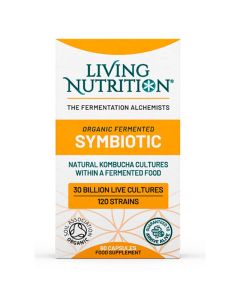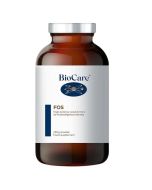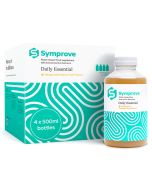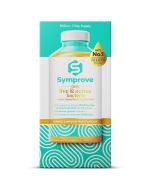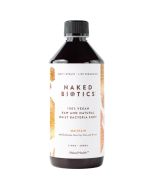
Prebiotics vs Probiotics: Can you take them together?
Yes, you can take prebiotics and probiotics together. Doing so can enhance the effectiveness of probiotics, a practice often referred to as "microbiome therapy." But what are prebiotics and probiotics, and why should you consider adding both to your daily routine?
This blog will explore the differences between prebiotics and probiotics, the benefits of taking them together, and important considerations for anyone thinking about incorporating them into their diet or supplementation routine.
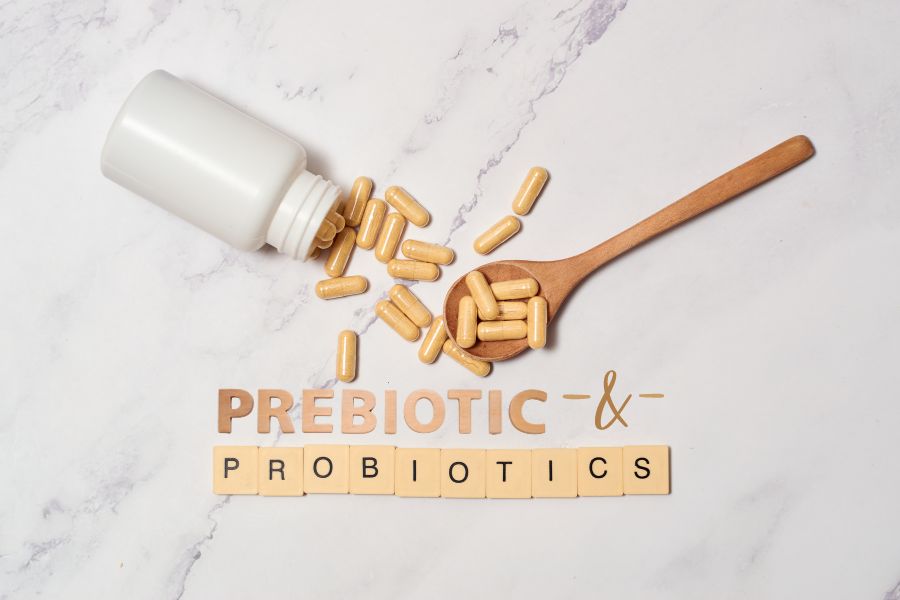
What Are Prebiotics?
Prebiotics are types of fibre that your body can't digest, but they serve as food for the good bacteria in your gut. By nourishing these beneficial microbes, prebiotics support a healthy gut environment. Common sources of prebiotics include:
- Fruits (especially bananas, apples, and berries)
- Vegetables (such as garlic, onions, and leeks)
- Oats and bran
- Legumes and beans
- Prebiotic fibre supplements
What Are Probiotics?
Probiotics are live microorganisms, such as bacteria and yeasts, that restore and balance your gut microflora to maintain a healthy balance of bacteria in your digestive system. These microorganisms can be found in fermented foods and supplements, helping to replenish the healthy bacteria in your gut, particularly after illness or antibiotic use. Probiotics are commonly found in:
- Yogurt
- Kefir
- Miso
- Sauerkraut
- Probiotic supplements
The Benefits of Prebiotics and Probiotics:
Taking both prebiotics and probiotics together can provide an extra-boost of support to your microbiome by restoring your gut health. Here are some key benefits of incorporating both into your routine:
- Improved Digestion: Together, prebiotics and probiotics support better nutrient absorption and help regulate bowel movements.
- Stronger Immune System: A healthy gut microbiome strengthens your immune system, reducing the risk of infections and inflammation.
- Mental Health Support:: A balanced gut microbiome is linked to improved mood and cognitive function, often referred to as the "gut-brain axis."
- Weight Management: Certain probiotics and prebiotics can assist in regulating appetite and reducing fat storage to support health weight management.
- Reduced Bloating: They can help alleviate common digestive issues like gas and bloating by promoting a healthy balance of gut bacteria.
Side Effects To Consider:
Generally, prebiotics and probiotics are safe for most people. However, they can have potential side effects and interactions, here are the most common symptoms:
- Prebiotics: Consuming large amounts of prebiotics can cause gas, bloating, or diarrhoea, especially if your body isn't used to them.
- Probiotics: Probiotics are generally well-tolerated, but some people may experience mild digestive upset, especially when first starting a supplement.
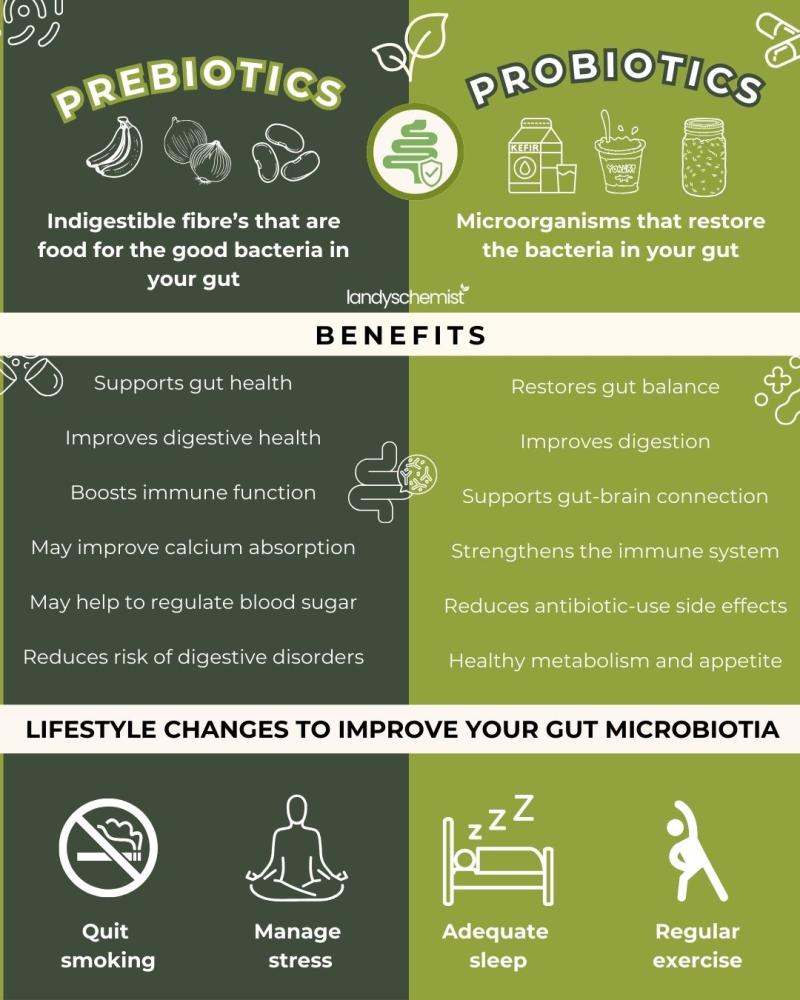
Factors to Consider When Buying Prebiotics and Probiotics
Not all supplements are created equal and are of the same quality, these are several factors to consider when choosing the best prebiotic or probiotic for your needs:
- Sources: Choose high-quality sources of prebiotics (like inulin, FOS) and probiotics (like Lactobacillus and Bifidobacterium strains).
- Quality: Always opt for brands that use quality control measures and list the strains and amounts of bacteria in their products. Some of the best pre and probiotic brands include Symprove, Naked Biotics, and Living Nutrition.
- Allergens and Intolerances: Check labels carefully for allergens such as dairy or gluten. Some probiotics are cultured in dairy, which could be an issue for those with intolerances.
- Potency: The number of live bacteria or Colony Forming Units (CFUs) is crucial. Look for probiotics with billions of CFUs for effectiveness.
- Survivability: Not all probiotics survive the harsh environment of the stomach. Ensure the supplement is formulated to ensure the live bacteria can reach the gut intact and survive stomach acid.
Are Liquid or Capsule Probiotics Better?
Both forms have their advantages. Capsule probiotics are often more convenient and ensure a controlled dose of live bacteria. Some capsules are also designed to be resistant to stomach acid, ensuring that the probiotics reach your gut.
Liquid probiotics, on the other hand, are easier to digest and may be more suitable for people who have difficulty swallowing pills. However, they may need refrigeration and many people may struggle with the taste.
Mixed Formulations: What Are Synbiotics?
When prebiotics and probiotics are combined in one supplement, they're referred to as synbiotics. Synbiotics are designed to provide the beneficial bacteria (probiotics) alongside their fuel (prebiotics), maximising their effectiveness. The link between synbiotics and weight management is increasingly being studied for it's potential in enhancing metabolism and supporting appetite regulation. These formulations are a convenient way to ensure you're getting both components in one dose.
Lifestyle Changes That Can Improve Your Gut Microbiota
Beyond diet and supplementation, there are lifestyle factors that can positively influence your gut microbiome:
- Quit Smoking: Smoking has been linked to an imbalance in gut bacteria.
- Exercise Regularly: Physical activity promotes a healthy gut.
- Manage Stress: Chronic stress can negatively affect your gut microbiota.
- Get Enough Sleep: Poor sleep habits can disrupt the balance of gut bacteria.
When To Take Prebiotics and Probiotics
It's perfectly fine to take prebiotics and probiotics at the same time. In fact, this can enhance the benefits of probiotics, as the prebiotics help to "feed" the good bacteria introduced by the probiotics. This combination, referred to as microbiome therapy, is a great way to support gut health.
However, you don't need to take prebiotics for probiotics to work effectively. If you are eating a balanced diet rich in prebiotic foods, you may not need a prebiotic supplement. It's always best to take probiotics with food, as this can help protect the bacteria from stomach acid, ensuring more of them reach the gut.
When is the best time to take probiotics when you are on antibiotics?
Taking probiotics alongside antibiotics is often recommended because antibiotics can deplete your body's healthy bacteria. Probiotics can help replenish your gut flora during and after antibiotic treatment, reducing the likelihood of digestive upset or secondary infections. It's best to take them at least 2 hours before taking your antibiotics to maximise their effectiveness. This can be done during the day or night.
Summary
Taking prebiotics and probiotics together can boost digestion, improve immunity, and even support mental well-being. The key difference between prebiotics and probiotics is that prebiotics feed the beneficial bacteria already in your gut, while probiotics are live beneficial bacteria that help balance your gut flora. Whether you choose to get your prebiotics and probiotics from foods or supplements, always consider factors like quality, potency, and individual tolerances.
For the best results, maintain a balanced diet, lead a healthy lifestyle, and consult a healthcare professional if you have any concerns, particularly if you're taking other medications. By doing so, you'll be well on your way to nurturing a healthy, balanced gut.
Sources
- https://www.ncbi.nlm.nih.gov/pmc/articles/PMC5622781/
- https://www.ncbi.nlm.nih.gov/pmc/articles/PMC4049942/
- https://www.ncbi.nlm.nih.gov/pmc/articles/PMC8001875/
- https://www.ncbi.nlm.nih.gov/pmc/articles/PMC6469458/
- https://www.ncbi.nlm.nih.gov/pmc/articles/PMC8540110/
- https://www.ncbi.nlm.nih.gov/pmc/articles/PMC4425030/
- https://ods.od.nih.gov/factsheets/Probiotics-HealthProfessional/
- https://bmcmedicine.biomedcentral.com/articles/10.1186/s12916-023-02863-1
- https://www.ncbi.nlm.nih.gov/pmc/articles/PMC5357536/
- https://www.sciencedirect.com/science/article/pii/S2352289516300509
- https://www.sleepfoundation.org/sleep-news/gut-microbiome-affects-sleep

